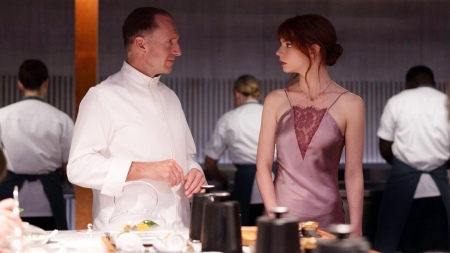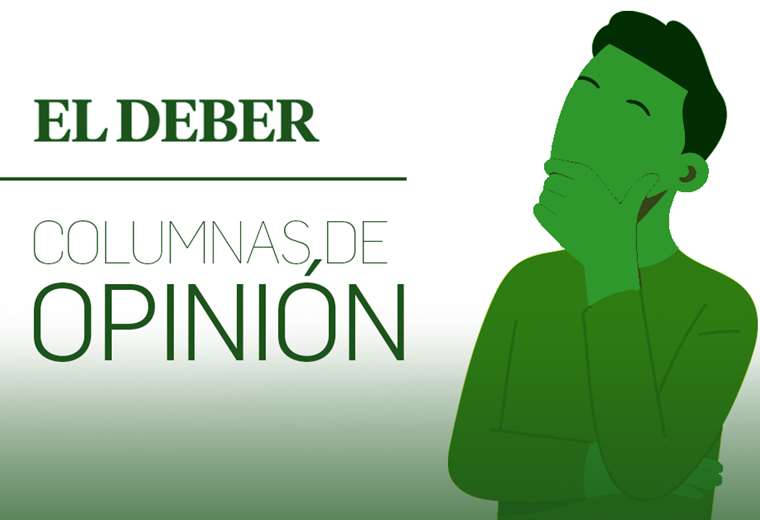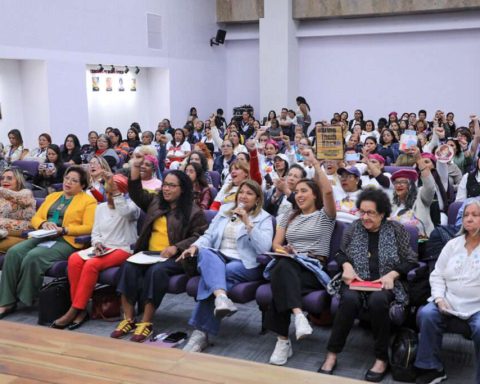In these times when gastronomy has become the passion of the multitudes, a phenomenon not only economic but also cultural (the gourmet phenomenon)on the exclusive theme of dozens of television signals, YouTube channels, culinary influencer accounts on Instagram or documentaries filmed around the world for streaming platforms, different series such as “El oso” (available on Star+) and movies such as “ The menu” (will be seen in Argentine cinemas from November 17 after passing through the Mar del Plata Festival) have begun to expose the most sordid back room, to show the not exactly glamorous reverse side of that world that is synonymous with status , sophistication and exclusivity.
If in general food has been filmed as something tempting, sensual, in many cases linked to the purest pleasure, and chefs have been revered as avant-garde artists, brilliant creators worthy of the popularity of a rock star, a few recent works seem to recover the blackness, the critical gaze and the capacity for provocation who once showed “La gran comilona” (1973), by Marco Ferrari, with -no less- Marcello Mastroianni, Philippe Noiret, Michel Piccoli and Ugo Tognazzi; Paul Bartel with “Eating Raúl” (1982), Peter Greenaway with “The cook, the thief, his wife and his lover” (1989); “Delicatessen” (1991), by the French duo Marc Caro and Jean-Pierre Jeunet; highly questioning documentaries such as “Super Size Me” (2004), by Morgan Spurlock; or denunciations from fiction such as “Fast Food Nation”, by Richard Linklater.
On the other hand, if we were to take a quick, capricious and inevitably limited tour of the “official history”, of the films that celebrated that universe and in some way defined this subgenre, we could include “Tampopo” (1985), by Japanese director Juzo Itami ; “Babette’s party” (1987), by the Danish Gabriel Axel; “Like water for chocolate” (1992), by the Mexican Alfonso Arau; “Eat, Drink, Love” (1994), by Taiwanese Ang Lee; “Big Night” (1996), by Campbell Scott and Stanley Tucci; “Soul Food” (1997), by George Tillman Jr.; Pixar’s animated production “Ratatouille” (2007); “Julie & Julia” (2009), by Nora Ephron, with Meryl Streep and Amy Adams; “Amor a la carta” / “The Lunchbox” (2013), by the Indian Ritesh Batra; “Chef” (2014), by and with Jon Favreau; “A journey of ten meters” (2014), by the Swedish Lasse Hallström with Helen Mirren and producers such as Steven Spielberg and Oprah Winfrey; documentaries such as “Jiro Dreams of Sushi” (2011), by David Gelb; or approaches such as “Willy Wonka and his chocolate factory”, with Gene Wilder (Tim Burton also did his version of Roald Dahl’s work entitled “Charlie and the chocolate factory” with Johnny Depp in 2005). The unavoidable question is if that type of more friendly, accommodating, picturesque and in some cases even demagogic approaches are beginning to be outdated.
In the initial proposal of “The menu” there is something of that exclusive and sophisticated universe (a group of eleven rich and famous people pay fortunes to travel to an island in order to enjoy a unique experience conceived by a legendary chef), but the truth is that the film mutates as they progress the minutes towards something much more satirical, uncomfortable and finally terrifying and disturbing.
The point of view is that of Margot (Anya Taylor-Joy), a young woman who accompanies a gourmet enthusiast named Tyler (Nicholas Hoult) on the trip and with them embarks a couple of tycoons, executives of technology companies, a star of cinema and even a recognized gastronomic critic. Once at the destination (an authentic natural paradise), the guests are greeted by chef Slowik (Ralph Fiennes), who will become a kind of master of ceremonies and ruthless manipulator of the evening. It is not advisable to advance too much, but things will not be as the guests expected in what is a very black tragicomedy, an acid and ruthless criticism of snobbery, consumerism and luxury tourism.

In the case of “Bear” (all eight half-hour episodes are already available on Star+ and the series already has a second season confirmed), as well is set in the world of gastronomy with a chef as the protagonist. However, the series created, co-written and co-directed (he filmed five of the eight episodes) by Christopher Storer takes on the character of Carmen ‘Carmy’ Berzatto (the Jeremy Allen White of “Shameless”), who until a year ago worked in a distinguished New York restaurant, from the moment he returns to Chicago to take over a decadent and chaotic canteen that sells steak sandwiches.
The place in question belonged to her brother Mike (the great Jon Bernthal, who appears in some flashbacks), an addict who has committed suicide without explanation, and Carmy must join forces with another banshee, her often out of control cousin Richard ‘ Richie’ Jerimovich (Ebon Moss-Bachrach), to run a slum full of debts with Uncle Jimmy (Oliver Platt), who doesn’t even generate enough income to pay the suppliers and who doesn’t pass the health checks carried out by health officials either. city.
In the midst of galloping stress (the long scenes inside the kitchen have an unusual intensity), Carmy and Richie will be recruiting a multi-ethnic team of cooks, in which Sydney (the excellent Ayo Edebiri) will soon stand out. The different episodes will expose the daily dynamics of each of the characters with their anxieties, their fears, their contradictions, their wounds and their traumas in what is a story about the passion (and torture) of cooking and at the same time a heartbreaking treatise on grief.
Storer (who already had a good background with Bo Burnham and in the series “Ramy”) and his partner Joanna Calo (“BoJack Horseman”, “Hacks”), who also directed the remaining three episodes, show a very particular sensitivity and of an unusual humanism when dealing with melodramatic issues (the implications of a suicide and how others must deal with the consequences of such a decision) without falling into edifying morals, sentimentality or low blows. A series about the pleasant and unpleasant details of a trade, about how to cope with daily pressures, about the passion for a job well done, and about love and solidarity to transcend a thousand crises.


















